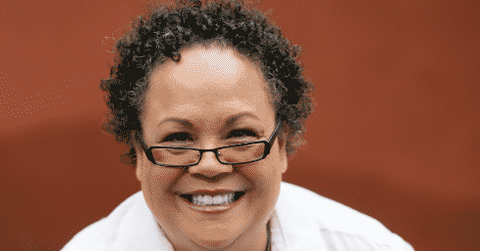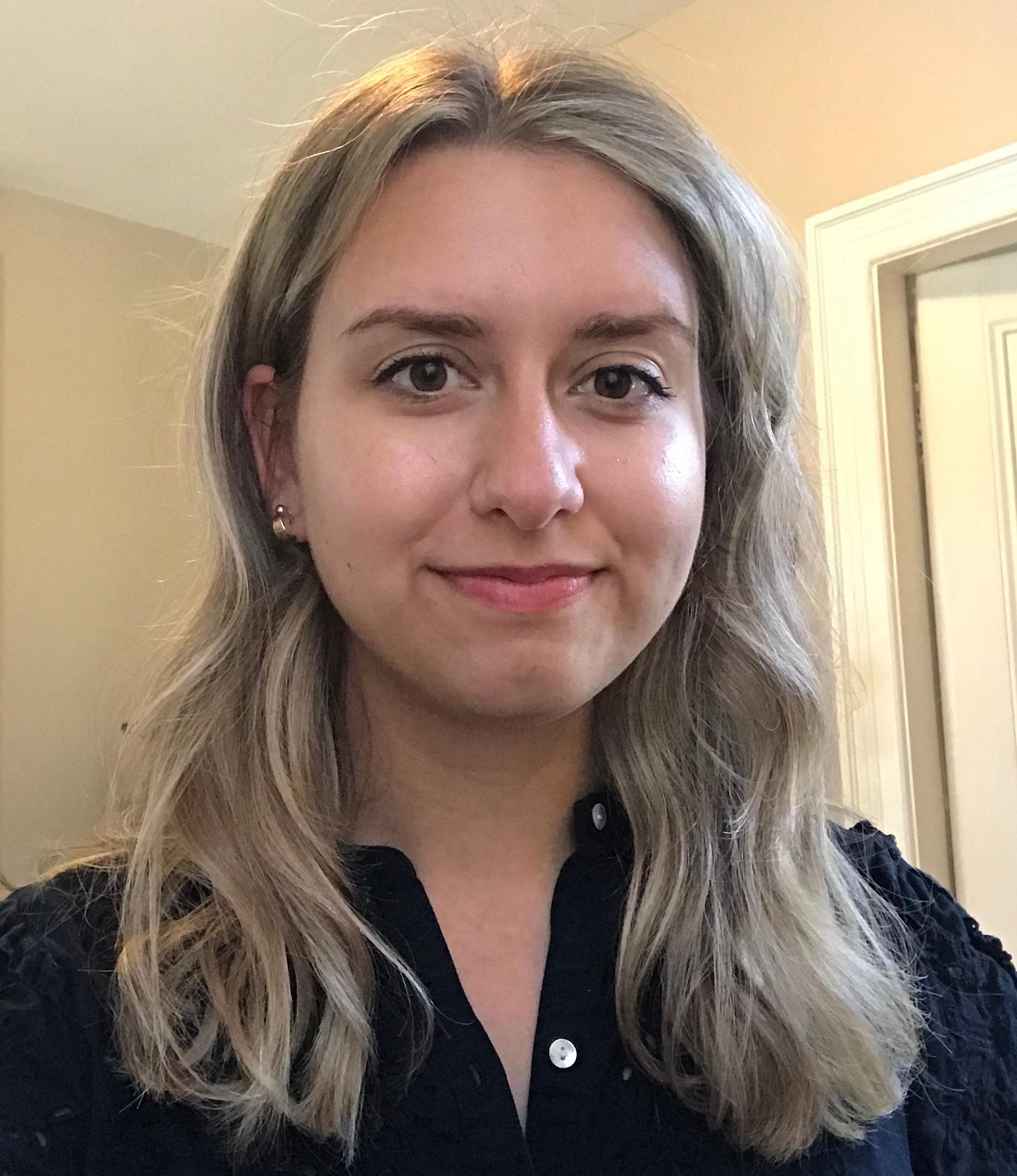Julie Lythcott-Haims is rooting for you.
Actually, she’s rooting for all humans, and she writes and speaks in service of helping them achieve their dreams.
Lythcott-Haims is a New York Times bestselling author, speaker, and activist who wrote the anti-helicopter parenting manifesto How to Raise an Adult. Her most recent book, Your Turn: How to Be an Adult, was just published in April 2021. Lythcott-Haims lives in the San Francisco Bay Area with her partner of more than 30 years, their two young adults, and her mother.
Lythcott-Haims spoke with Her Agenda about her new book, her goals for 2021, parenting, and more.
Her Agenda: You’ve written three books so far. What are some of the main takeaways from each one?
Julie Lythcott-Haims: The first book, How to Raise an Adult, is a fierce critique of helicopter parenting and a fierce insistence that young people need to be allowed to try and fail through childhood so they can be successful adults. Parents need to back off and stop micromanaging in order for their kids to live a healthy adult life.
The second book, Real American, is on being Black and biracial growing up in white spaces dealing with microaggressions and racism, and descending from the innocence of childhood into a place of self-loathing or internalized oppression, and coming out of that— doing the work to name that and tame that and ultimately claim my self love as a Black woman. It’s a prose/poetry memoir, so the language in some places dances and stomps its foot and sings.
My third book, Your Turn: How to Be an Adult, is the companion to the first. It’s me directly speaking to anybody, specifically young people emerging into adulthood, who are feeling “I can’t, I don’t want to, adulting is hard.” I put the lives of close to three dozen other people in the pages in order for it to be a very inclusive book. It’s implicitly a book that says “If we’re going to talk about a subject that relates to all humans, we have to put all humans in these pages.”
Too many non-fiction self-help books purport to be for all, but the examples are all drawn from a narrow slice of the human community, say the straight white middle-class slice, and my book rejects that. That’s the subversive element of the book, it’s saying if we really want all lives to matter, we have to put all lives on the page. So this is my effort as a Black writer to demonstrate how within our writing we can help advance our antiracism philosophy and how to actively deconstruct implicit assumptions about whiteness being the norm.
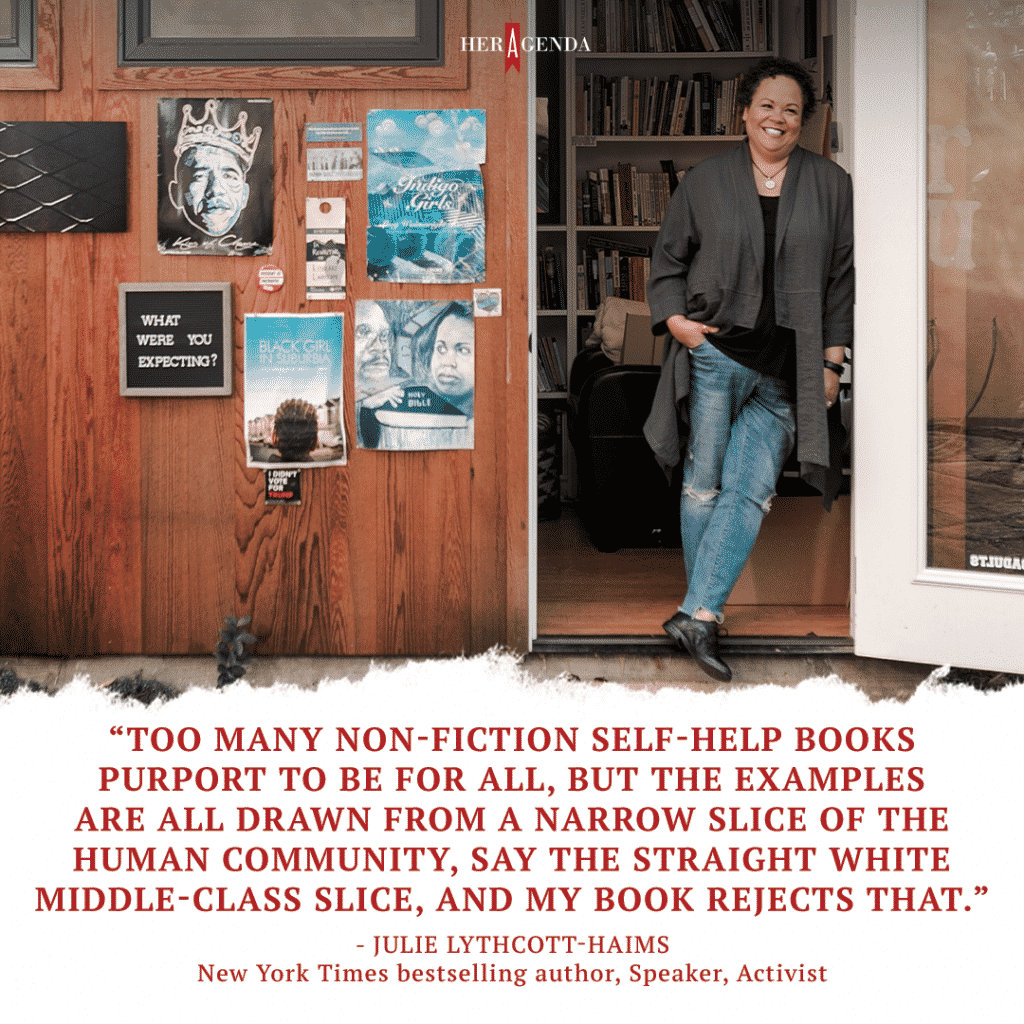
Her Agenda: I recently watched your TED Talk about anti-helicopter parenting and something that really stood out to me from that is when you said, “Kids aren’t bonsais, they’re wildflowers.” Could you explain what you mean by that and how that approach to parenting can help raise successful kids?
Julie Lythcott-Haims: My vantage point is as a former college dean. I was a dean watching 18 to 22-year-olds make their way through college. I’m not a parenting expert; it just happens that parenting is the problem animating a lack of ability and resilience in young people.
A bonsai tree exists because a gardener has imagined what it should be. A bonsai tree is carefully cultivated and shaped to resemble what the gardener imagines as the ideal. Too often, children are raised that way. A parent has the vision of the ideal child, meaning what they will study, who they will love, what they will become, what they will earn, how they will contribute in life. The child is effectively the product of the parent’s imagination. It’s a deeply arrogant, problematic approach to parenting.
A wildflower simply grows as it is. If it has sunlight and water, it grows and becomes itself. And usually, it’s gorgeous. Even a weed is a wildflower, but it is strong. These wildflowers have agency. They are becoming themselves, where the bonsai tree is simply the project of a gardener.
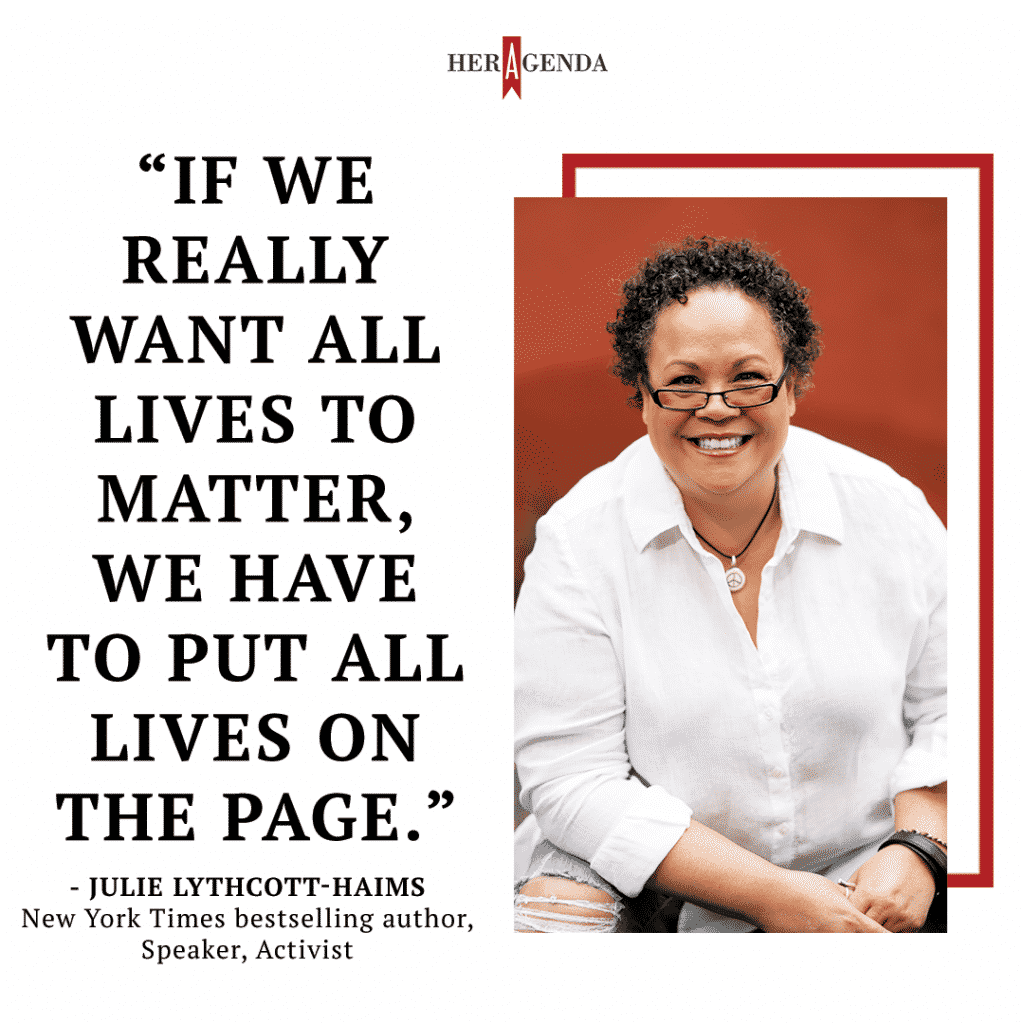
Her Agenda: Your third book, Your Turn: How to Be an Adult, was published this month. What was your inspiration to write it?
Julie Lythcott-Haims: My publisher wanted a sequel to the New York Times bestseller. I signed a contract to write that book, and then for about three years I just struggled with how to write it because I didn’t feel that I was an authority on adulting. But then I realized, who is an expert on adulting? Adulting is simply the stage of life you enter if you survive childhood. There’s nothing mysterious about it, it’s just the next phase where you’re no longer somebody’s bonsai tree.
Once I got clear that I don’t have to be an authority, I don’t have to be the wise guru on a hill articulating pearls of wisdom, but instead, if I just accept I’m older, I’ve lived a lot of life, I’m compassionate and rooting for young people. If I can summon the vulnerability of the lessons I’ve learned the hard way, the compassion I’ve always had for young people, and the insistent voice I’ve got that is blunt and frank and funny sometimes, then I could find my way into the book.
So I failed to write the book for three years but then finally found a voice that felt authentic to me, that is rooted in this vulnerability.
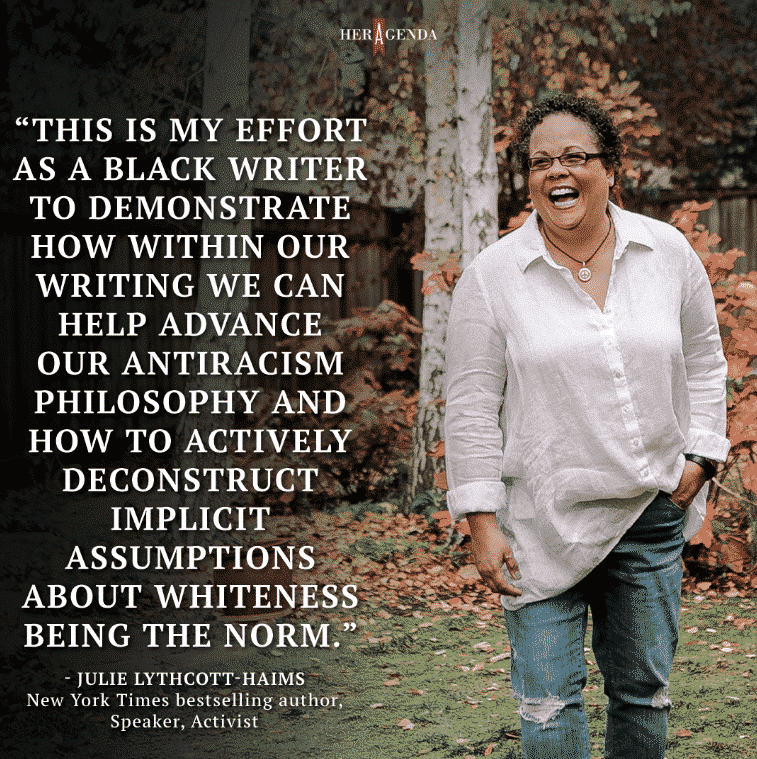
Her Agenda: Now that the book is published, could you share some of your remaining goals for 2021?
Julie Lythcott-Haims: When my last book came out, I set three goals for that year. That it would be a New York Times bestseller, that Oprah Winfrey would find out about it and want to talk to me about it, and that I would be able to work on improving my relationship with my mother. The first two goals did not come to pass. But I worked hard to know myself better around the stress points with my mom. We all live together, we own a property here in Palo Alto, so my mother’s in my daily life. I look back on that and am proud that that is the goal that was achieved. Because my relationships are more important than anything.
So to carry that theme forward, my fourth book, the book I’m about to start working on, is a mother-daughter memoir about living together that she will co-write with me. I’m very much hoping that she and I make progress on that book this year. Nothing would delight me more than to see my mother’s name on a book and for her to become a published author, and for us to tell the tales of our journey. We think our journey can help others, which is why I think one writes a memoir, to be of service. So I’m hoping that my mother and I will succeed at being of service to others who are in a three-generational living situation.
And I’ve got kids! They’ve been hit by the pandemic in every way we think of that. I’m rooting for these kids. I am doing my best to be the parent they need me to be at this time of life. I’m still in that work of trying to be the right kind of parent for these two. Every time I see evidence that they are launching in some manner, it brings me joy.
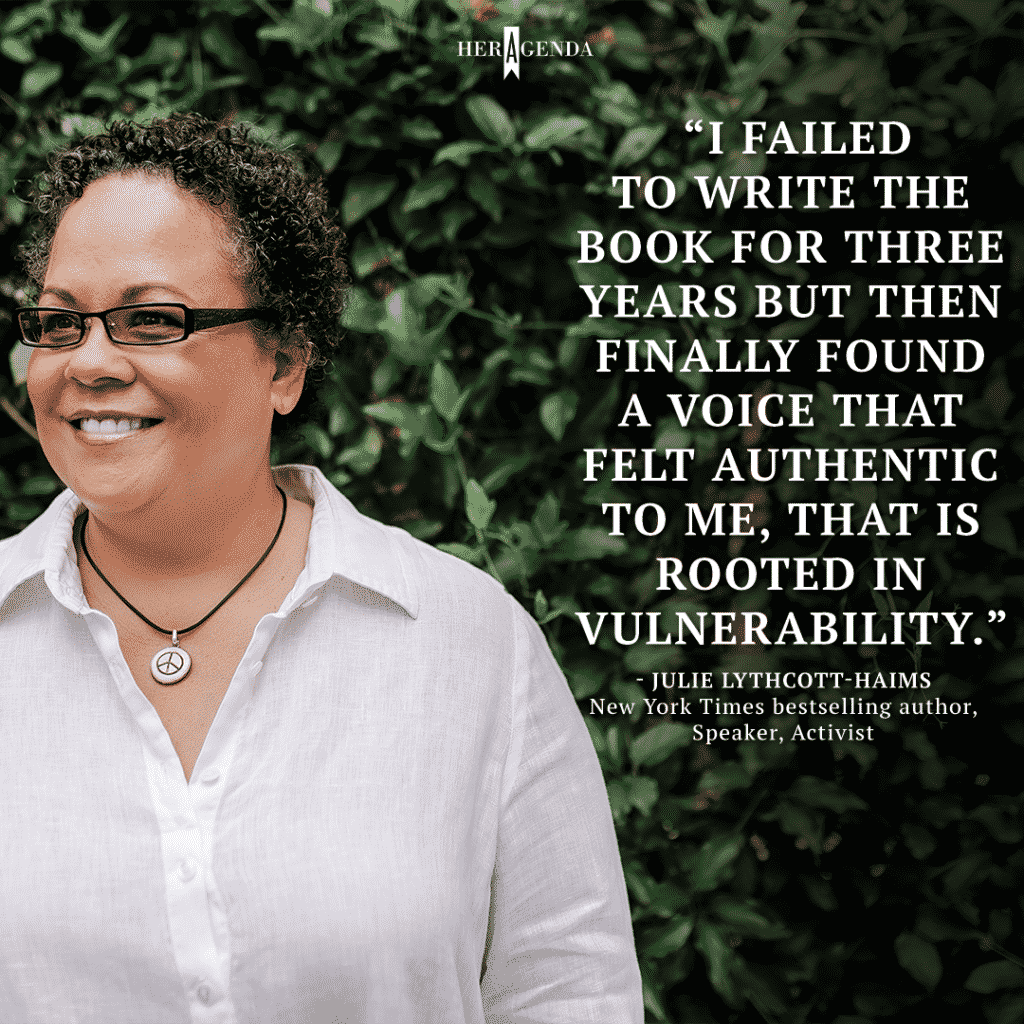
Her Agenda: With Covid-19, it sounds like a lot has changed for your family in the last year. Are there any changes that you want to take with you when you resume “normal” life?
Julie Lythcott-Haims: For the first two weeks of the pandemic, I was doing “popcorn visits,” checking in on my mother every day, but my mom really needed much deeper engagement. So from then until this morning, I have had an hour-long coffee with my mother every weekday morning. It has been precious, and we will definitely carry it forward. It’s helped us on our journey toward deeper knowing each other and smoothing out the rough patches, it has been a huge investment of time, it has been understanding what she needs by way of love and decided that it matters.
Her Agenda: How do you stay positive and keep moving forward when you experience disappointments in your career?
Julie Lythcott-Haims: I have largely kicked my perfectionism to the curb. Usually, I can bring myself through mindfulness to a place of saying, You know what? Okay. That didn’t go so well. But it’s behind you, you cannot change it. What can you learn from it? What could you have done differently? Or maybe there was nothing I could have done differently, maybe I gave it my best and it just didn’t work out. I can accept that so much is out of my control and that I’m going to learn and grow from it. I have finally gotten to that place, but it took me decades to get here.
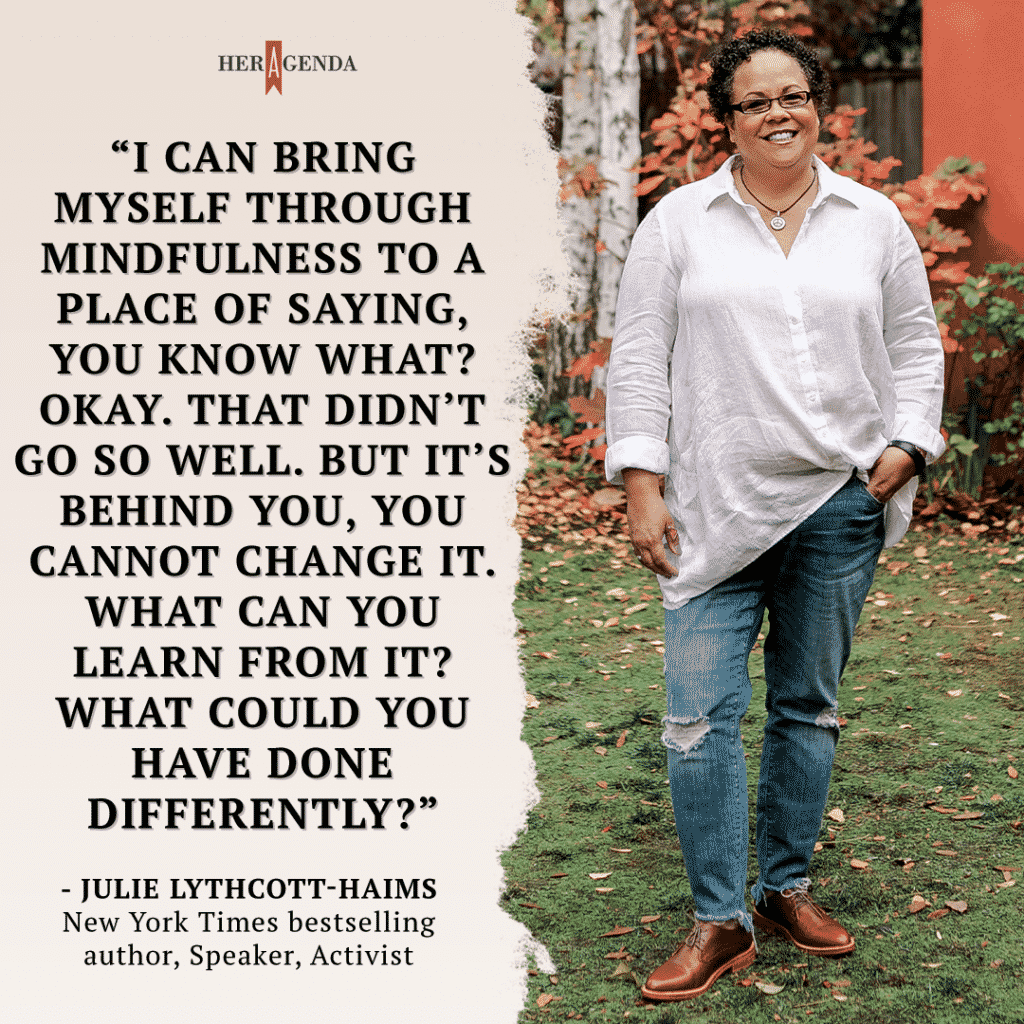
Her Agenda: If you could be remembered for one thing, what would you want that to be?
Julie Lythcott-Haims: That I was rooting for all humans to make it. That I took an interest in the journey of others, and that I was rooting for others to know that they matter, to know they belong here, and to know they have the right to go for whatever their wildest dreams about their own existence might be.
[Editor’s note: This interview has been edited for length and clarity.]

